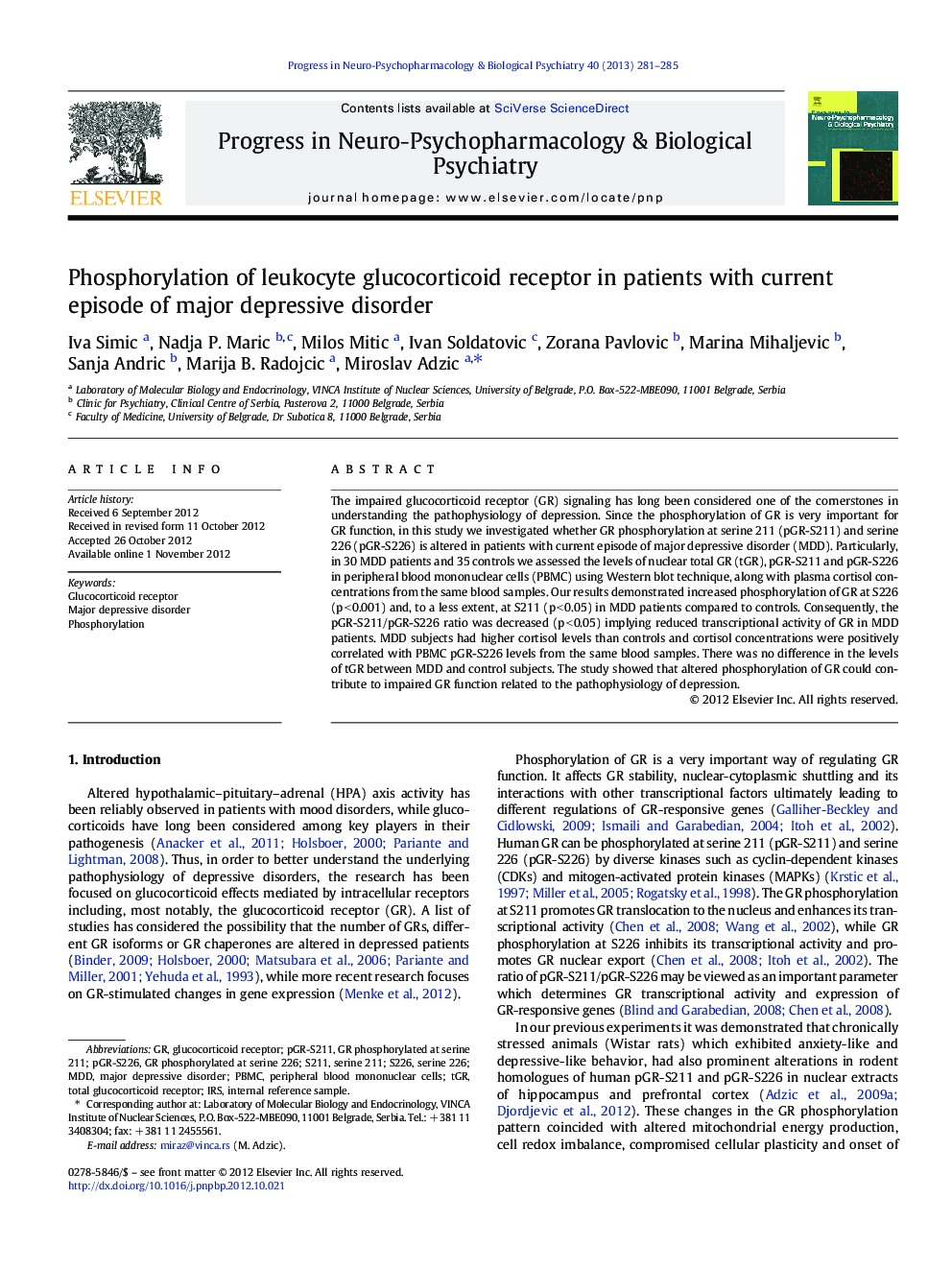| Article ID | Journal | Published Year | Pages | File Type |
|---|---|---|---|---|
| 2564977 | Progress in Neuro-Psychopharmacology and Biological Psychiatry | 2013 | 5 Pages |
The impaired glucocorticoid receptor (GR) signaling has long been considered one of the cornerstones in understanding the pathophysiology of depression. Since the phosphorylation of GR is very important for GR function, in this study we investigated whether GR phosphorylation at serine 211 (pGR-S211) and serine 226 (pGR-S226) is altered in patients with current episode of major depressive disorder (MDD). Particularly, in 30 MDD patients and 35 controls we assessed the levels of nuclear total GR (tGR), pGR-S211 and pGR-S226 in peripheral blood mononuclear cells (PBMC) using Western blot technique, along with plasma cortisol concentrations from the same blood samples. Our results demonstrated increased phosphorylation of GR at S226 (p < 0.001) and, to a less extent, at S211 (p < 0.05) in MDD patients compared to controls. Consequently, the pGR-S211/pGR-S226 ratio was decreased (p < 0.05) implying reduced transcriptional activity of GR in MDD patients. MDD subjects had higher cortisol levels than controls and cortisol concentrations were positively correlated with PBMC pGR-S226 levels from the same blood samples. There was no difference in the levels of tGR between MDD and control subjects. The study showed that altered phosphorylation of GR could contribute to impaired GR function related to the pathophysiology of depression.
► The impaired GR function is known to be related to the pathophysiology of MDD. ► Nuclear pGR-S211 and, particularly, pGR-S226 were increased in PBMC of MDD patients. ► The ratio of nuclear pGR-S211/pGR-S226 was decreased in PBMC of MDD patients. ► These results imply reduced transcriptional activity of GR in MDD patients.
